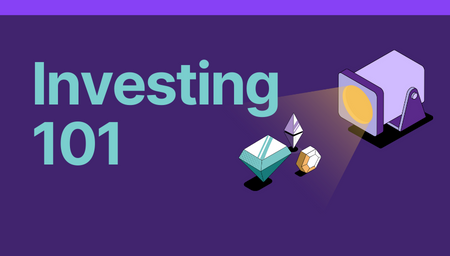What are the different types of commodity mutual funds?

Over the years, investors have been more inclined to diversify their portfolios by investing in different asset classes like equity, real estate, fixed-income instruments etc. Slowly but surely, commodities are becoming more popular as an investment option.
If you are an investor looking to diversify your portfolio further, commodity mutual funds might be worth considering. But before we discuss the types of commodity mutual funds, let's give you a brief overview of what commodities mean.
What is a commodity?
Commodities are a type of asset class that refers to raw materials or primary goods. They are commonly used in commerce, such as agricultural products (e.g., coffee, wheat, corn, soybeans), energy products (e.g., crude oil, natural gas), metals (e.g., gold, silver, copper) and other natural resources (e.g., timber, water).
There are a variety of instrument vehicles through which investors can gain exposure to commodities. One of the more feasible options is commodity mutual funds.
What are commodity mutual funds?
Commodity mutual funds are investment funds that invest pooled money in commodities, such as gold, silver, oil etc. It's a great way to invest in commodities without purchasing it. Let’s explore the different types of commodity mutual funds available for investors.
Types of commodity mutual funds
- Natural resource funds
Under these funds, money is invested in those companies and organisations with access to natural commodities like gold, silver, oil, etc. Thanks to technological developments, you can now invest in renewable energy sources like wind energy.
- Commodity index funds
Commodity index funds invest in a range of commodities, usually tracking an index. These funds provide investors with exposure to a diversified basket of commodities. Commodity index funds are typically low-cost and offer a convenient way to gain exposure to commodities.
- Basic True commodity funds
These funds invest in commodities that are primarily physical assets, like metals. They are prone to fluctuations in market prices but are quite popular amongst investors.
- Commodity futures funds
Commodity futures funds invest in futures contracts for commodities such as gold, silver, and oil. These contracts give investors the right to buy or sell a specific commodity at a predetermined price and date in the future. Commodity futures funds can be risky because of the volatility of the futures market, but they can also provide high returns.
- Combination funds
They are a mix of the basic commodity fund and ** commodity futures**.
Benefits of investing in commodities
Investing in commodities can offer several benefits, including:
- Diversification
Commodities have a low correlation with traditional asset classes like stocks and bonds. It means they can provide diversification to a portfolio. It can help reduce overall portfolio risk and volatility.
- Inflation hedge
Commodities have historically performed well during periods of high inflation. As the prices of goods and services increase, so does the cost of commodities. Therefore, investing in commodities can act as a hedge against inflation.
- Supply and demand dynamics
The prices of commodities are influenced by supply and demand dynamics. It can create opportunities for investors to profit from market imbalances. For example, a shortage of a particular commodity can cause prices to rise, creating an opportunity for investors to make a profit.
- Portfolio rebalancing
Commodities can be used as part of a portfolio rebalancing strategy. For example, an investor can rebalance if a portfolio is heavy on stocks, by selling some of their stock holdings and purchasing commodities.
- Potential for high returns
Commodities can provide potentially high returns, especially in times of high demand. For example, the price of oil can skyrocket during times of war or when natural disasters occur. If you invest in commodities at the right time, you can earn a significant return.
- Tangible asset
Commodities are tangible assets that can be physically owned and stored. It provides a sense of security that is not available with other investments, such as stocks or bonds, which are not tangible assets.
- Easy to understand
Commodities are relatively easy to understand since they are based on physical goods such as oil, gold, or crops. This makes them accessible to investors who may not have much experience in investing.
- Global demand
Commodities are in demand worldwide, which means there is always a market for them. This can provide stability to your investment since the demand for commodities is not limited to a specific geographic region.
Overall, investing in commodities can be a great way to diversify your portfolio, hedge against inflation and potentially earn high returns.
However, it's important to remember that commodities can be volatile and may not be suitable for all investors. It's essential to do your research before making any investment decisions.